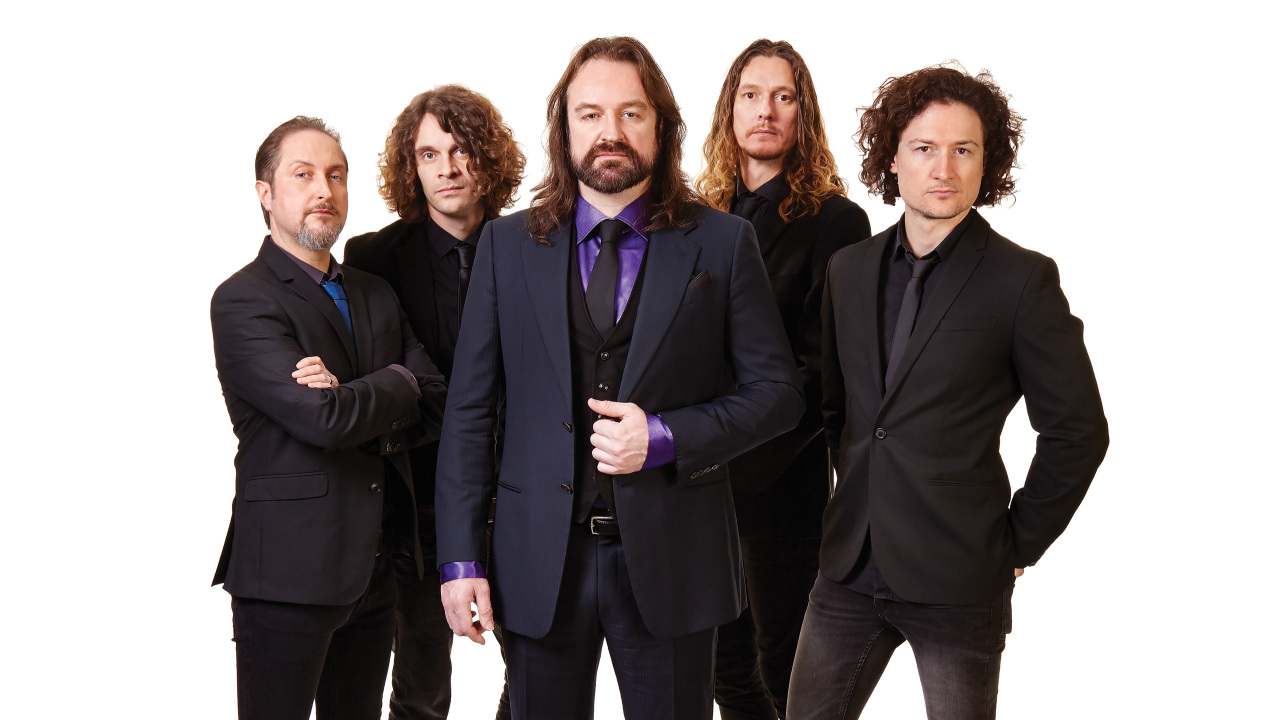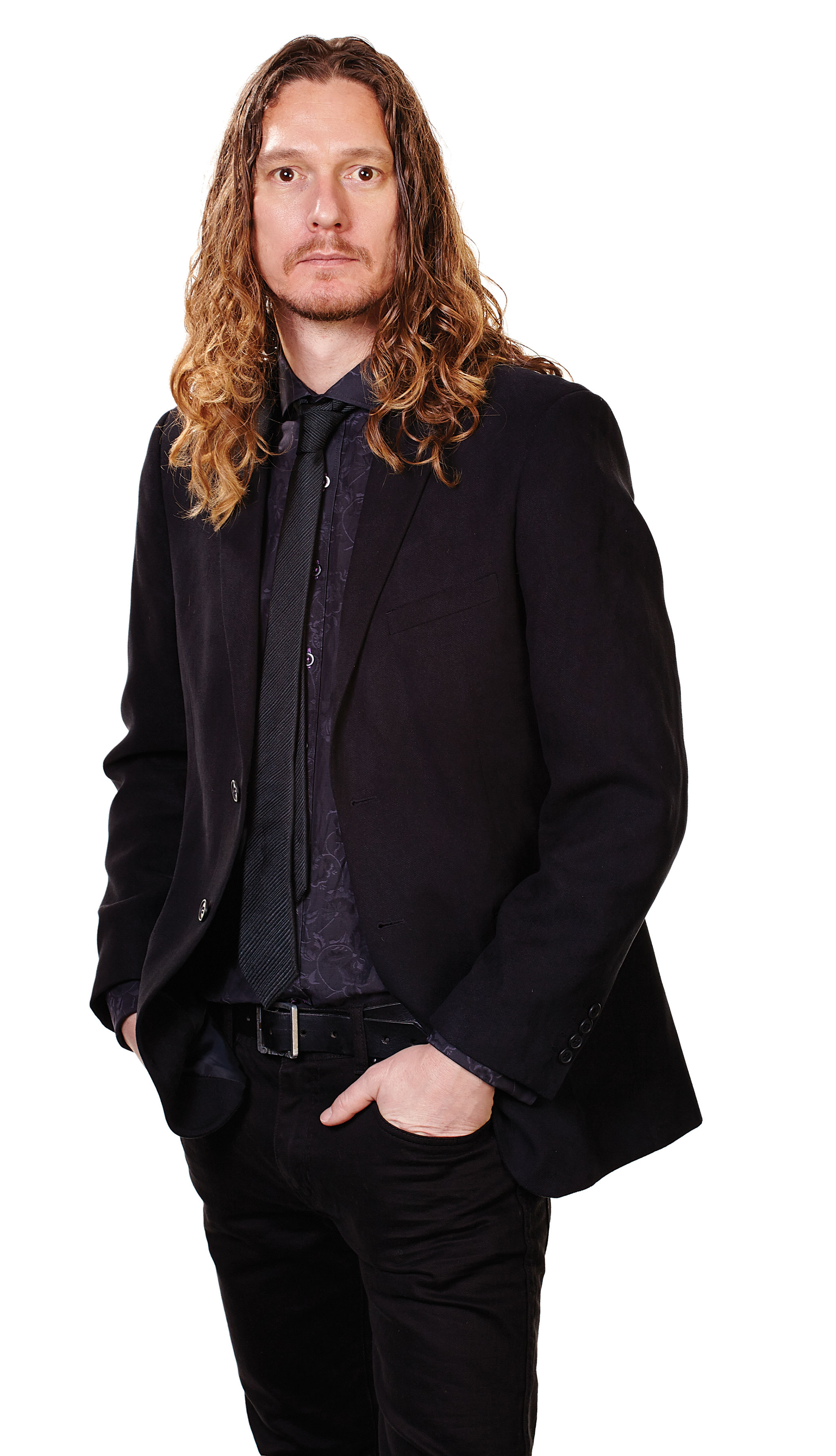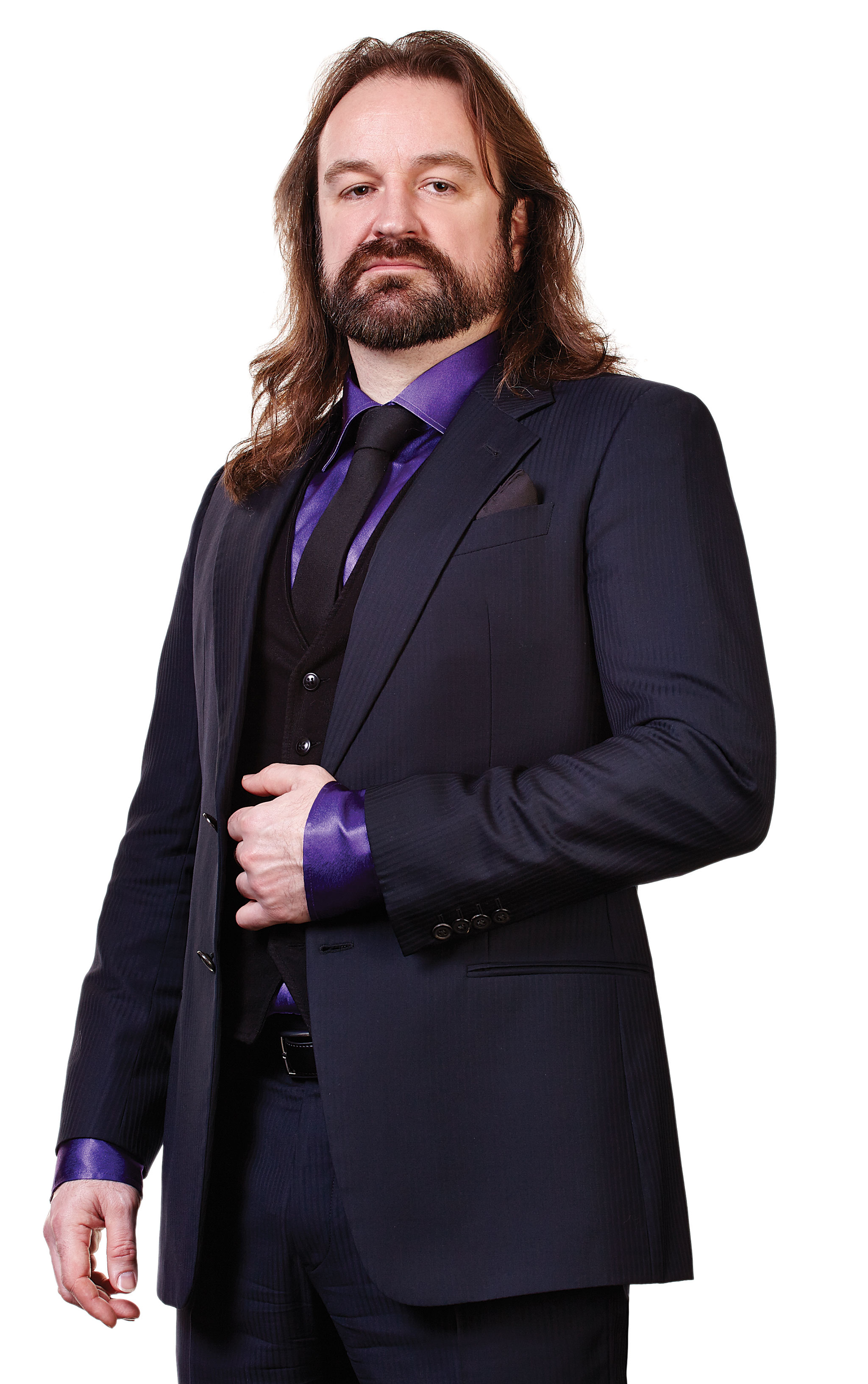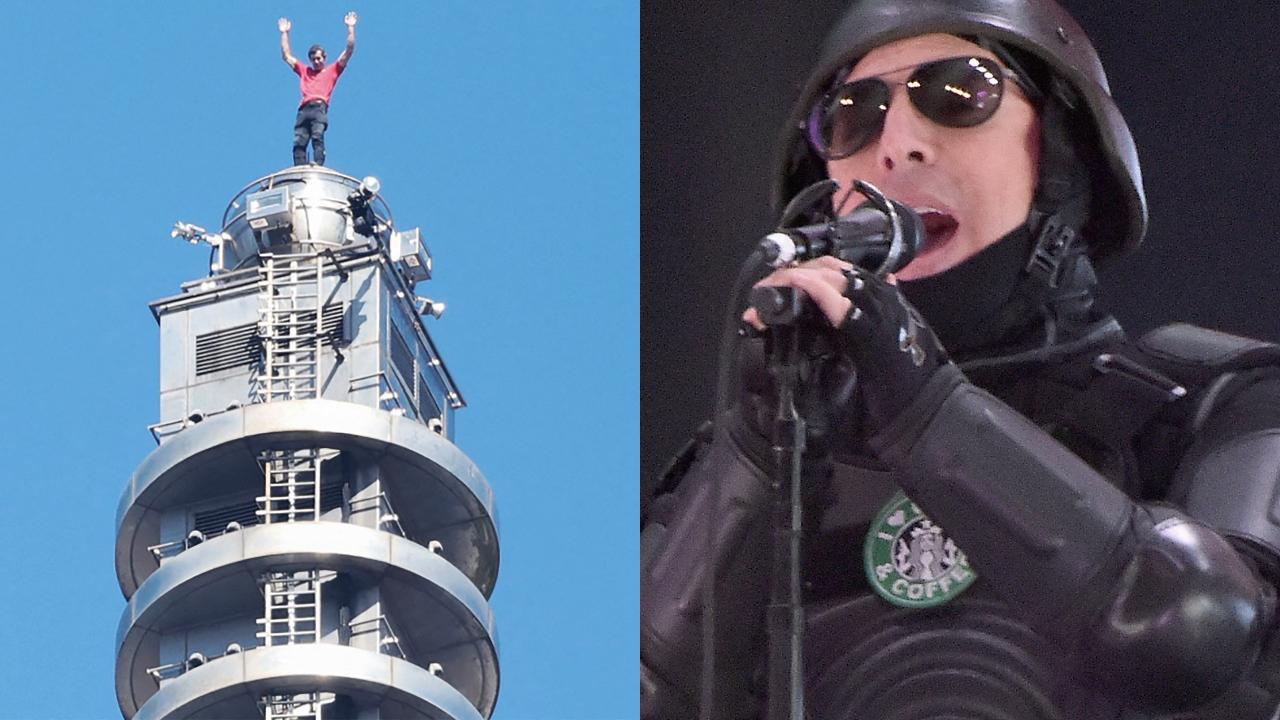Headspace's Damian Wilson: We've allowed ourselves to do our own thing
On their long-overdue second album All That You Fear Is Gone, Headspace sound bigger, better and bolder. “We all have very high expectations,” the prog supergroup tell us…

In these days of media-savvy, frequently beige rock stars whose interviews sound more like spin-doctored political press releases, it’s refreshing to know that open, mercilessly honest musicians still exist. Headspace singer Damian Wilson is clearly one of them as he describes his thoughts when hearing the initial recording of the new Headspace album All That You Fear Is Gone.
“Honestly, it was unlistenable,” he says with a dry snigger. “I just thought, ‘My God, what have we done?’ I really did. I felt we had just stuffed it, that there were too many ingredients and that it was madness. Then when it was mixed, it all just gelled and sounded great. To be honest, I’m working on an album now and I’m hoping the mixing will do the same. But there’s so much input from these five individuals that of course it’s going to be overpowering if it’s not mixed well.”
Wilson has a point. The combination of musical talent within Headspace is an unusual one, with each band member bringing their own technical dexterity, emotion and musical idiosyncrasies to create a distinctive sound. When the likes of keyboard player Adam Wakeman, guitarist Pete Rinaldi and bassist Lee Pomeroy combine, the musical backdrop is clearly identifiable, and the adding of Wilson’s expressive vocals add a further dimension.

Though they formed in 2007, aside from the new album, their back catalogue only includes an EP and their 2012 debut I Am Anonymous. This is a frustration for fans who believe this band could succeed as a full-time operation. The reality, though, is that due to outside musical commitments, Headspace’s recording and touring can only occur when there are suitable gaps in their respective calendars. Wakeman continues to work with Black Sabbath and produce music for TV, while Wilson’s place in Threshold and other projects ensures there’s little room for Headspace.
“It’s frustrating but the biggest problem is that we aren’t 19 years old – we’ve got responsibilities and families,” says Wakeman. “We would all like to be doing this more and it’s not a case of it just being a two-week holiday every three years. It might seem like that, and I know it frustrates people, but we give it the best of the time we can. The reality is that to actually put the time in and tour, we wouldn’t make a great deal of money. We’re not Rush or Genesis so we’re very realistic in what we do. We wouldn’t do a show with one day’s rehearsal as we all have very high expectations of how this band should be.
Headspace are such a great band and I honestly don’t think that in terms of musicianship you can do better than them.
“That’s also why the albums take so long. It’s not just the problem of getting together, but we have an ethos of not rushing it. I don’t want to be in a position in 10 years’ time of sitting there saying, ‘Oh, that album could have been so much better.’ This is the one part of my life where we have 100 per cent control. We’re not just going to knock something out and give it to the record label.”
Sign up below to get the latest from Prog, plus exclusive special offers, direct to your inbox!
It was that required dedication to their cause that saw original drummer Richard Brook replaced with Adam Falkner. With Brook committed to outside projects, as well as having two young children, he resigned from the group after realising he wouldn’t be able to, as Wakeman puts it, “put enough time in to benefit the band”. Such distractions have been few, though, and the band are keen to continue their development from their well‑received debut. Although Wilson expresses his pride about I Am Anonymous, the self-critic in him reflects on what he sees as a substandard vocal performance.
“On the first album, I felt my vocals were the weakest bit of the album and let it down,” he reveals with a sigh. “I just didn’t feel it was my finest hour. This album is much stronger. When people give me a bad review for something I’ve done, I tend to agree with them, as I know what’s bad with a record. Headspace are such a great band though, and I honestly don’t think that in terms of musicianship you can do better than them.
“We did the EP, which was very rushed, and I got quite frustrated that it didn’t shine. It was really the first album where we could see the potential. It was great to then put that on to record and let everyone else hear what we can achieve. I get very excited by the musicianship and the input of all the band members.”
Writing for their new album began around three years ago, with Wakeman and Rinaldi convening when able in order to construct the material. Part of the appeal of Headspace is their ability to balance the heavier and more subtle elements that are at the core of their sound. As Wakeman reveals, the writing process itself dictates that both of these facets will find their own place.
“Well, that balance really does comes naturally and it’s due to the way we write together,” he confirms. “I will naturally sit down at a Fender Rhodes or a piano and Pete will either be on an acoustic or have his electric guitar. He comes out with some killer riffs and it just kind of takes a journey.

“Pete very much led this album and I was away a lot with Sabbath. Then we would get back together and work on it. That’s the beauty of Headspace, as every album will take a slightly different direction but within the boundaries of the band. When we first started, there were no predetermined ideas of what the band was going to be. It could have turned into anything, although ultimately, with our respective history, there was a fair chance it was going to be a prog band. We’ve never tried to do anything to meet any expectations: we just do what we want to do and it goes back to being true to what you believe in and not faking it. From a development point of view, this album is a bit more mature. That’s not taking anything away from I Am Anonymous though, as I honestly don’t think we could have written a better debut album.”
Many musicians find the concept of writing and recording separately an abhorrent prospect, citing the lack of spontaneity that only a band working closely together can achieve. Yet for Headspace, although that arrangement is born of necessity, it also works well. That’s partly because there’s an understanding and trust between the musicians that ensures a common direction.
The reality is that to actually put the time in and tour, we wouldn’t make a great deal of money. We’re not Rush or Genesis so we’re very realistic in what we do.
“We know what the other guys are up to and although we do get surprises, they’re never disappointing ones,” Wilson asserts. “We’ve allowed ourselves to do our own thing. That’s different from other things I’m involved in, as I feel with Headspace we’re really allowed to stretch out and do things individually that ultimately represent the whole band. Certainly with the progressive side, the playing is very skilled but it also has simple melodies running through it. That gives it a lot of emotion that isn’t always there with a lot of progressive bands and albums. I feel I’m a very emotional and expressive singer, which some people don’t like, but that has very much defined who I am as a vocalist.
“For this album, the music was basically presented to me to add vocals to, but I’d spoken in depth about the concept with the band. Everything fell into the idea I had, so all the musical surprises were good and it all worked very well. There was a real structure to the concept I wanted and it’s complete.”
The album is the second part of a trilogy, and conceptually differs from the band’s debut. Whereas I Am Anonymous concentrated on the perception of an individual trying to fit into a group, lyrically this album focuses on the inability of the group to control the individual. Although there are references to governments, pharmaceutical industries and religion, Wilson is keen to stress that he isn’t specifically criticising any one religious group.
“The trouble is, if you start talking about religion, it’s all opinion,” he muses. “So this is not in any way criticising any religion but saying that this is the way we are. We just did a video for the track The Science Within Us and that’s talking about how science and religion should go together beautifully, but oppose each other in so many ways. I worked on the melodies and the concept was always there from the beginning, as it is for the next album too. I actually lost the lyrics for the album and it was really hard to go back and write them again. I had to sit down and start again. It was only due to my lack of organisation and chaos that I lost them, but I don’t think it has suffered for it.”
The demands on the band members have so far ensured that live appearances have been limited. However, gaps in Black Sabbath’s touring schedule have given Headspace the chance to appear at a couple of UK festivals this summer. Wakeman reveals: “We’re doing the Ramblin’ Man festival and also Cropredy in August. We don’t have an agent or management – we’re self-sufficient – so I just got in touch with Cropredy and they said they would love to have us play. I was really taken aback with that. We can also get together between those two shows and do a few dates in Europe and the UK. We just can’t wait to get out there again.”
All That You Fear Is Gone is out now on InsideOut. See the band’s website for more information.
Proggers go pop!
Adam Wakeman on his weir and wonderful acoustic album with Damian Wilson.
Given the constraints on their time, you might imagine that Damian Wilson and Adam Wakeman wouldn’t want to add to that pressure, but the pair have just released an acoustic album entitled Weir Keeper’s Tale. It’s a record that was, it appears, written for the sheer hell of it, and a way for the singer and keyboard player to release some of their more accessible music.
“There isn’t really an outlet for a lot of my solo music,” says Wakeman. “Damian came up to stay for a few days and we went in my front room with the piano and guitar and spent two days just writing songs. It was a very natural process as he has been a great friend for so many years and we can be very honest with each other. That’s something you can’t really have with someone you’re writing with for the first time. With Damian and I, we’ll just say, ‘That sounds a bit shit, let’s move on.’ It really is that simple and we’re not going to get offended. We’re both too long in the tooth for that.”
They’ve also made a handful of live appearances, but as Wilson reveals, their first set was as a last-minute addition to a charity show. Consequently, he recalls the audience being less than enamoured with some aspects of his performance.
“We just got up and played and I think they found it all a bit shocking as I was getting up on top of tables and throwing myself about. I recall looking down and seeing a bloke who must have been in his late 60s. I felt I could read his mind and that he was thinking, ‘Who the hell do you think you are?’ So we enjoyed that and had a laugh – we should do more of it.”
